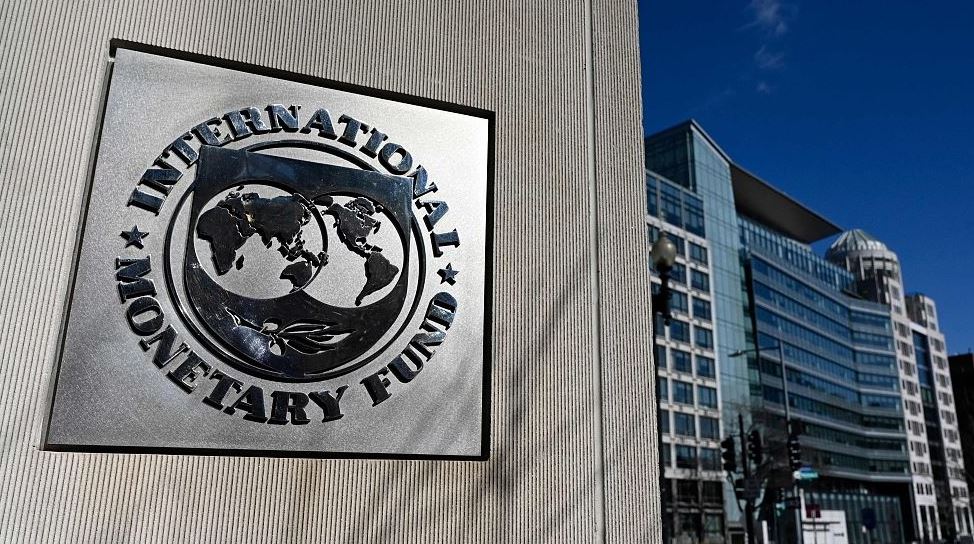While the International Monetary Fund (IMF) announced that it is working on a platform for digital central bank currencies (CDBCs) yesterday, the XRP army has discovered an IMF report from March 2023 in which Ripple is considered a potential problem solver. Remarkably, the links between the IMF and Ripple Labs date back several years.
IMF Plans CBDC Platform
As Reuters reported, the International Monetary Fund is planning a CBDC platform to enable transactions between countries.
“CBDCs should not be fragmented national propositions. To have more efficient and fairer transactions we need systems that connect countries. […] For this reason at the IMF, we are working on the concept of a global CBDC platform,” IMF Managing Director Kristalina Georgieva said on Monday.
She also called for the world’s central banks to agree on a common regulatory framework for digital currencies that would enable global interoperability. At the same time, she warned that cryptocurrencies could fill the vacuum if a common CBDC platform is not developed.
Georgieva highlighted the rapid pace at which CBDCs are being deployed around the world. Already 114 central banks are experimenting and studying CBDCs, “with about 10 having already crossed the finish line,” the IMF director said.
XRP Army Draws Links Between Ripple And IMF
Meanwhile, the XRP army discovered a March 2023 report by the IMF titled “Trust Bridges and Money Flows: A Digital Marketplace to Improve Cross-Border Payments”, which mentions Ripple and XRP. The paper presents, among other things, a model for a global marketplace for more efficient cross-border exchange of tokenized money.
“The model remains exploratory and is intended to lay an initial blueprint to encourage further scrutiny and debate,” says the IMF report, which sees two key benefits in setting up a marketplace for tokenized money: interoperability and more cost-effective foreign exchange trading.
The interoperability part involves the transfer of money to a recipient in a domestic or cross-border context. The foreign exchange part is to be considered in a cross-border context and involves the exchange of one currency for another. According to the report, there are three conceivable models for a marketplace:
A private settlement asset and marketplace, such as Ripple’s XRP; an open source marketplace such as the Stellar Foundation’s or, more recently, DeFi networks; and a marketplace and settlement asset based on unbacked crypto assets, such as Strike, which leverages Bitcoin and the Lightning Network.
However, according to the authors, the public solution (like Ripple’s) has decisive advantages as it could be operated by a regulated private entity. First, it would solve the coordination problem related to centralisation of participation and provision of liquidity; second, there would be clear and trustworthy governance and operational stability. Third, full compatibility with financial integrity standards would also be ensured.
Remarkably, Ripple Labs’ collaboration with the IMF goes back a few years. A November 2018 presentation by Sagar Sarbhai reveals that Ripple was selected for the High Level Advisory Group on Fintech. Chris Larsen, Executive Chairman of Ripple, is a member of the group.
Moreover, the XRP army has dug up several videos in which Ripple was allowed to speak at IMF conferences in the past years.
RIPPLE’S ANTOINETTE O’GORMA PRESENTING TO THE IMF ON CYBERSECURITY/ XRP LEDGER + “RIPPLE IS THE ONLY COMPANY THAT MONITORS AND REPORTS SUSPICIOUS ACTIVITY ON THE BLOCKCHAIN”
pic.twitter.com/eDNegASKlh
— ISO 20022…. LET’S DO IT (@Rohitku24694375) June 19, 2023
Ryan Zagone from Ripple Speaking with the IMF pic.twitter.com/pPxnRGTpS5
— The ISO GOAT (@XrpKing09531420) June 19, 2023
BREAKING NEWS!
International Monetary Fund (IMF) is developing a digital currency platform to enable transactions between countries.
Do you remember when Brad Garlinghouse joked with Ross Leckow about XRP? It’s all planned..#XRP THE STANDARD!
Source: https://t.co/UYYXvnxgpD pic.twitter.com/k0WBHQdCrO
— JackTheRippler ©️ (@RippleXrpie) June 19, 2023
At press time, the XRP price remained in the lower range after being rejected at the $0.4964 resistance.
Featured image from CGTN, chart from TradingView.com
Credit: Source link































